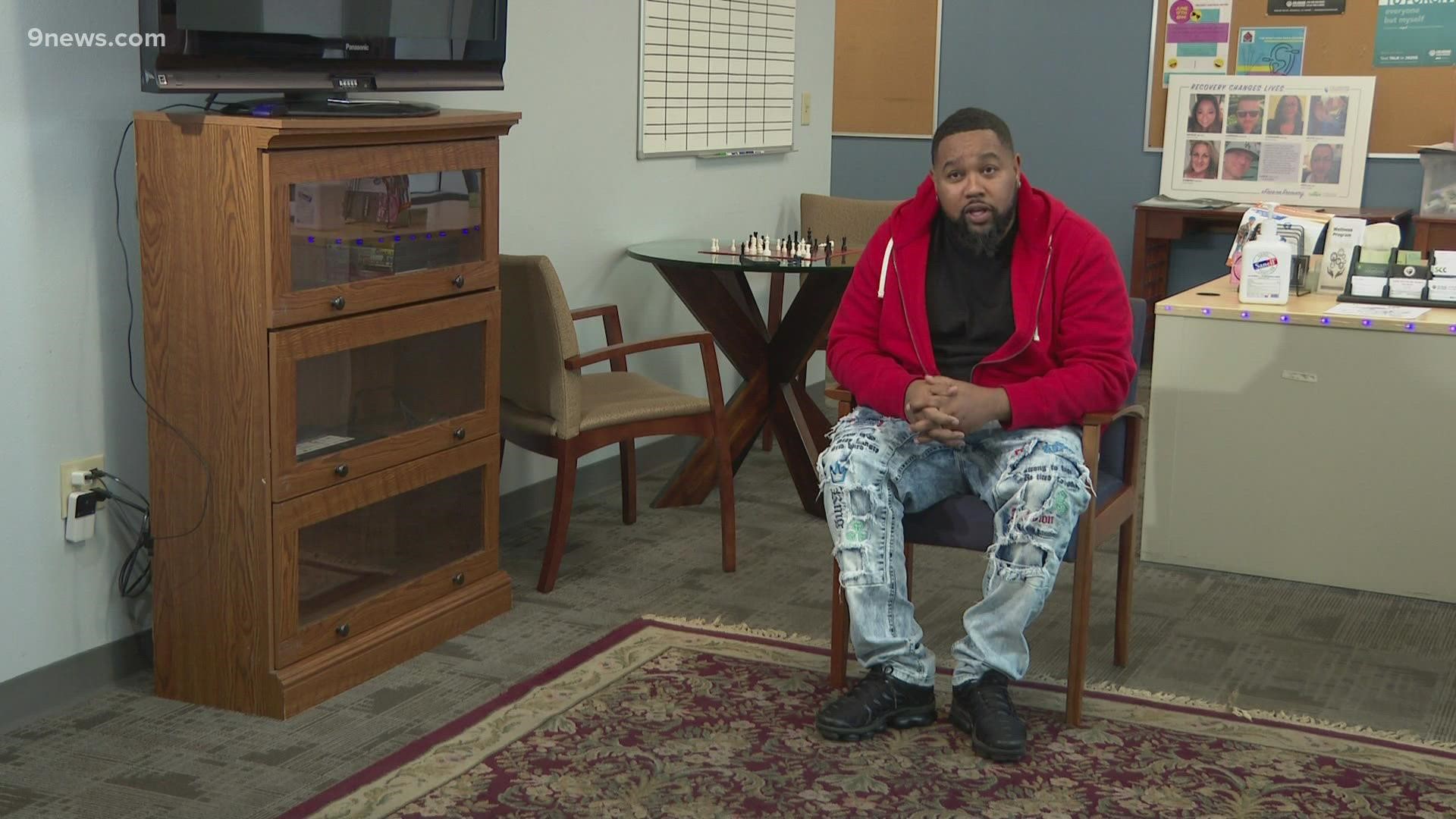AURORA, Colo. — No one wants the text messages Lawrence Goshon gets every day.
"Stab wound to the chest, plus neck hypotensive," Goshon said, reading from his phone. "ETA, five minutes.”
Goshon said the automated texts from UCHealth come at all hours. When his phone buzzes, it's time to head to the hospital and get to work.
“I’m usually there right away," Goshon said. "I’m up. I’m dressed. Probably something like the fire department. Throwing clothes on trying to get there. Trying to see what’s going on with those kids.”
Goshon is a different kind of the first responder. He's an outreach worker with GRASP, or Gang Rescue and Support Project.
“GRASP was a program designed for youth, [ages] 14 to 24, that are experiencing violence or any kind of gang-related activity," Goshon explained.
Goshon and fellow outreach worker, Josh Ford, cover the Aurora area and respond to the hospital after incidents of violence involving young people.
“The load never gets lighter," said Ford. "It’s just, you add to it.”
Last month, the automated messages were especially hard to read. On Nov. 15, six teenagers were wounded in a shooting at Nome Park across from Aurora Central High School. Later that week, three teens were shot in the parking lot of Hinkley High School.
“We met with the kids from the Nome Park shooting," Goshon said. “Some of the kids were really distraught, were really hurt. Didn’t understand anything that was going on, along with their parents.”
Goshon and Ford approach difficult conversations in their own way, pulling from their personal backgrounds and experiences.
“First of all, you make sure they’re okay," Ford said. "You know, they’re healing physically, and you help them mentally. Then, you, you know, you tap into their potential.”
The hospital visits don't always go as planned with teens who may not be receptive to hearing from an outreach worker.
“They’re not going to always be as receptive as we would like them to be, but in that first contact, we want to make sure that they understand that we’re here to offer love and care and we’re going to help them and their families in any way possible," Goshon said.
Goshon said he's been working with GRASP for about three years, and the work is personal.
“I do this work because I don’t want to see these youth, these kids, go through what I did," he said.
Goshon said he served time in prison years ago and was once involved in a gang.
“I try to just catch a lot of these kids and keep them from messing up their lives," Goshon said. “They don’t know that the crime you commit at 16 is going to affect you at 40."
Goshon and Ford can't easily explain the uptick in youth violence in Aurora.
“Some is generational trauma," Goshon said. "Some kids just grew up in this, and it’s what they know.”
Goshon said he also believes music, TV and social media play roles in projecting violence as "the cool things to do."
"A lot of kids want to live that life not realizing the consequences that come behind it," he said.
The outreach workers know the automated texts will keep coming. They will respond again to the bedside of a teenager wounded by gunfire, and that's where their work begins.
Goshon and Ford also provide one-on-one mentoring that carries on for months, and their long-term goal is to steer teens away from violence.
“Most of these kids need help," Goshon said. "Like, they need to be loved.”
SUGGESTED VIDEOS: Latest from 9NEWS

